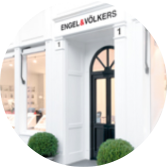.webp)
.webp)
Home Insurance 101 For New Homebuyers And Home Renters
Many people take considerable time making a huge investment in real estate but fail to protect it with home insurance. Buying home insurance as a first-timer can be daunting, and shopping for the right kind of coverage is vital when searching for the best policy to fulfill all your needs.
These are some of the most common insurance questions and corresponding answers to ensure that you are equipped with basic home insurance policies.
What Exactly Is Home Insurance?
Home insurance, otherwise known as homeowners insurance, is usually a bundled insurance package covering the costs associated with loss or damage to your home. Home insurance policies usually include the following:
- Household contents insurance - covers the cost of loss and damage to your household contents. This means that insurance will cover the costs of replacing or repairing your household contents if they are lost or damaged due to fire, theft, broken water pipes, damage from typhoons, heavy rainfalls and/or other natural environmental causes. It generally covers all household items such as furniture, appliances, clothes, electronic items, and jewelry. Different insurance packages may cover more or less.
• Personal liability insurance - provides indemnity against your indemnity for accidental death or bodily injury of a third party or accidental loss or damage to third party property. In Hong Kong, home insurance protects your home and home contents and your personal belongings with the option to protect your rental income, domestic helpers, and even extra miscellaneous items like golf-related belongings. Every market is different, so make sure to check the specifics within your area of residency for more detailed information on exactly what can be covered and what cannot be covered under your home insurance package.

What Precisely Does Homeowners Insurance Cover? What’s Included?
Let’s get into more detail about the coverages that are typically included in homeowners insurance. Standard home insurance policies will generally include coverage for your home contents, home structure, liability, other additional structures, and living expenses.
- Home Contents -As stated above, home contents coverage includes all your belongings that are damaged or destroyed. This type of policy is typically set in the range of 50%- 70% of your home’s structural coverage. For items of a higher value that you own, such as expensive jewelry or art pieces, there tends to be a cap on the repair/replacement value. The cap is depending on the policy as well. If you wish to get more coverage for such higher-valued items, you will need to up your insurance policy on a case-by-case situation.
- Structural -Structural coverage is for any damages or destruction to your home that needs to be repaired or rebuilt, in which case, your insurance policy will help pay for these expenses. You should set your structure coverage in the amount that it would take to rebuild your home from the ground up (not the same as the amount you paid for your home).
- Liability - This one is really important but often goes unnoticed. If you cause damage to anyone on your property by accident or if someone gets injured on your property, the liability insurance policy can help cover the expenses for medical, rehabilitation, and/or funeral costs. It’s generally better to set your liability policy higher - especially if your home includes anything that can lead to accidents - such as a swimming pool, trampoline, or if you live on the top floors of a skyrise where accidents can be prone to happen. Maybe you don’t think it’s important to have liability insurance, but do keep in mind that should any accidents happen on your property - medical and legal costs can really add up and set you back rapidly.
- Additional Structure - This is less common in Hong Kong because most homes are apartments, but for homes with a detached house, garage, shed…etc, this insurance policy will cover any destruction caused by peril. Your insurance policy will help offload the expenses needed to repair and rebuild the additional structures that are a part of your home.
- Additional Living Expenses - Again, (Knock on wood!), if in an unfortunate turn of events that your home is destroyed due to fire hazards, water hazards or other environmental hazards and needs to be rebuilt, this type of coverage can help pay for your living expenses in the meantime - such as hotel and food bills for the duration of time that you do not have a home to live in.
What Are Covered Perils? What Does it Cover?
Covered perils are the cases of loss in an insurance policy. The standard home insurance policies which usually include any damages caused by fire (the most common), tornadoes, windstorms, lightning strikes, theft, vandalism, explosions,riots and other potential disasters. Coverage can be provided either on an “all perils” basis or a “named perils” basis. What’s the difference between the two policies?
- Named Perils -policies that list exactly what is covered
- All Perils -policies that list exactly what is excluded from coverage
These are the standard types of disasters that are covered by most homeowner’s insurance. Still, it’s important to double-check with your insurance policy for the specific perils that are covered and what your area is most at risk of:
- Fire or lightning
- Windstorm or Hail
- Explosion
- Riot or Civil Commotion and Unrest
- Damage caused by aircraft
- Damage caused by vehicles
- Smoke
- Vandalism or malicious mischief
- Theft
- Volcanic eruption
- Falling object
- Weight of ice, snow, or sleet
- Accidental discharge or overflow of water or steam from within a plumbing, heating, air conditioning, or automatic fire-protection sprinkler system, or from a household appliance
- Sudden and accidental tearing apart, cracking, burning, or bulging of a steam or hot water heating system, an air conditioning or automatic fire protection sprinkler system, or of a household appliance
- Sudden and accidental damage from artificially generated electrical current (does not include loss to a tube, transistor, or similar electronic component)
- All perils except flood, earthquake, war, nuclear accident, landslide, mudslide, sinkhole, and others specified in your policy. (Check your policy for a complete list of perils excluded
Although disasters such as floods and earthquakes are typically not covered by standard home insurance policies, you can get a separate policy that specifically covers them. Luckily, Hong Kongers don’t have to worry too much about environmental disasters since there aren’t many natural hazards here compared to high-risk zones like Tokyo and California (Earthquake Central) or the Midwest in the U.S tornadoes and hurricanes are prone to happen.

Do You Need An Insurance Policy In Order To Buy A Home?
The simple answer is no. Insurance policies are generally optional, so it’s up to you whether you choose to get insured or not. You can legally own a home without insurance. However, if you are buying your home on loan, your lender may require you to purchase home insurance as a way to protect its investment. It’s case by case really.
Should You Insure Your Home Or Not? Is it Really Necessary?
This is one of the oldest and most commonly asked questions in the book. Although home insurance is completely optional, it would be unwise to dismiss it without giving it comprehensive thought. Although it’s true that you should get yourself insured especially if you have expensive home contents, home insurance isn’t just for the wealthy. Standard home insurance covers any damage due to fire hazards, water hazards, and third-party liability insurance. If anything in your home breaks or if (knock on wood!) your house burns down for whatever reason,at least you can be assured that you are properly covered. As for third-party liability insurance - what exactly does it mean? Well, if you accidentally drop something off your balcony and it hits someone, you are covered also. You never know what can happen, and accidents do happen, that’s why they are accidents. As the age-old adage goes, “It’s better to be safe than sorry!”.
How Do You Know Which Policy Package To Get?
To figure out exactly how much coverage you need, you should complete a home inventory list. Make a comprehensive list of each and every item you own and its corresponding value. You should also include photos and videos of your items, the amount you paid for them, along the receipts for reference. The more detailed your inventory list is, the better your insurance company can accurately estimate the amount of coverage you need.
How Is Homeowners Insurance Calculated? What determines How Much You Will Pay For A Policy?
The following list is factors that insurance providers take into account:
- Credit score
- Claims history
- Location of your home
- Age of your home and building
- The costs associated with rebuilding your home
- Your proximity to a fire department and fire hydrant
- Whether you own pets or not. Usually, your liability coverage cost will go up if you own larger breeds of dogs.
- The coverage you choose.
Industry Terms You Will Come Across And What They Are
When shopping around for an insurance policy, you will likely hear of terms like premiums, deductibles, and limits. Sounds confusing, right? New Homeowners and renters often have no idea what these terms mean. Here we will break it down for you in the simplest layman’s terms.
- Premium -Premiums are the amount you pay to your insurer regularly to keep a policy running. You can pay premiums monthly, quarterly, bi-annually, or annually, depending on your insurance provider and specific policy package.
- Deductibles -This is the amount you pay out of your pocket before your insurance will help pay for a covered loss. Depending on your insurance company, you may be able to set deductibles for particle policies, or your provider will set the deductible for you. In general, the higher your deductible, the lower your ongoing premium will be.
- Limits -This refers to the maximum amount of money an insurance company will pay you for a covered loss. Generally, the higher your coverage limit, the higher your premium will be.
How Do You Choose An Insurance Provider That’s Right For You?
As with any kind of shopping, it’s always smart to window shop first. Try not to pick the first company you speak to because all insurance companies have different coverage and costs. Rather than jumping right in and making a rash decision, make sure to get written quotes from various insurance providers to ensure that you make the wisest decision possible for you and your home.
Remember, research is key to getting your next dream home or apartment in Hong Kong.To get more information about the housing environment, real estate market or housing market prices, contact our real estate agent at Engel & Volkers by by visiting https://www.hongkongev.com
Engel & Volkers specializes in elite homes, luxury mansions, premium residential properties and other real estate for sale in Hong Kong.

.webp)
.webp)
